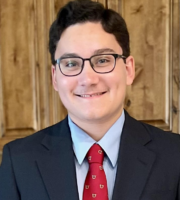
About one in four foreign dollars comes from Arabic countries
A pro-Israel group is raising concerns about foreign countries’ donations to American universities.
About one in four foreign dollars donated to American universities in the past four decades have come from Arabic countries, many of whom are hostile to Israel.
A total of $13 billion have come from Arabic countries, out of about $55 billion total.
The latest report from the American-Israeli Cooperative Enterprise “documents the substantial sums contributed by donors from Arab states and the resulting pressure on universities to avoid teaching or research that might offend them.”
A Department of Education February 2024 report “lists 24 donations worth $11,618,000, all from ‘Palestinian territories,’” according to the group. However, the United States does not official recognize a separate Palestinian state.
“It also flags transparency issues and the potential influence of Arab governments on U.S. universities,” the report states.
Mitchell Bard, the report’s author and AICE’s executive director, provided further commentary to The College Fix via email.
“Funding can be an incentive/disincentive to take a particular position. E.g., Qatar would want positive research about its government and be upset over research on Al Jazeera, radical Islam, or corruption in its World Cup bid,” Bard (pictured) told The Fix. “Faculty may teach skewed versions of history, downplaying for example terrorism.”
He said, “universities should be required to report what foreign funds are specifically used for and their sources and this information should be published by [the Department of Education].”
“Departments should be policed so they do not take political positions,” Bard told The Fix. The ‘academic’ needs to be put back into academic freedom,” he said.
His group does not want to “vilify Arab funding sources,” according to the report. Rather, it wants to see “transparency measures to safeguard academic integrity, foster a health exchange of ideas,” and “ensure” funding is not being used to “sway” research, curriculum, and “faculty recruitment.”
The top four recipients of Arab donations since 1981 are all prestigious research universities – Cornell University, Georgetown University, Texas A&M University, and Carnegie Mellon University, top the list.
MORE: Punish students for anti-Israel encampments, 3 in 4 Americans say
Cornell received the largest sum of funding at $2.1 billion, followed by Georgetown with $934 million, Texas A&M with $910 million, and Carnegie Mellon with $900 million.
None of the four universities responded to three emailed requests for comment sent in over the past month. The Fix asked the media representatives for further comment on the report, including safeguards on donor influence.
Bard said there could be some neutral or positive reasons why foreign countries donate to American universities, when asked by The Fix.
“Arab governments are interested in improving their societies so they sponsor students to be trained in various fields that will help their host country,” Bard said.
“Influential leaders, royals, and their children may come to the US to get the best education,” the foreign policy analyst said. “Arab states have a shared interest in certain research, such as health, that can benefit them.”
“They may think they can burnish their image by associating with a prestigious US institution.”
MORE: College blames low enrollment on ‘negative press’ about anti-Israel protests
IMAGE: Middle East Forum/YouTube
Like The College Fix on Facebook / Follow us on Twitter






Please join the conversation about our stories on Facebook, Twitter, Instagram, Reddit, MeWe, Rumble, Gab, Minds and Gettr.